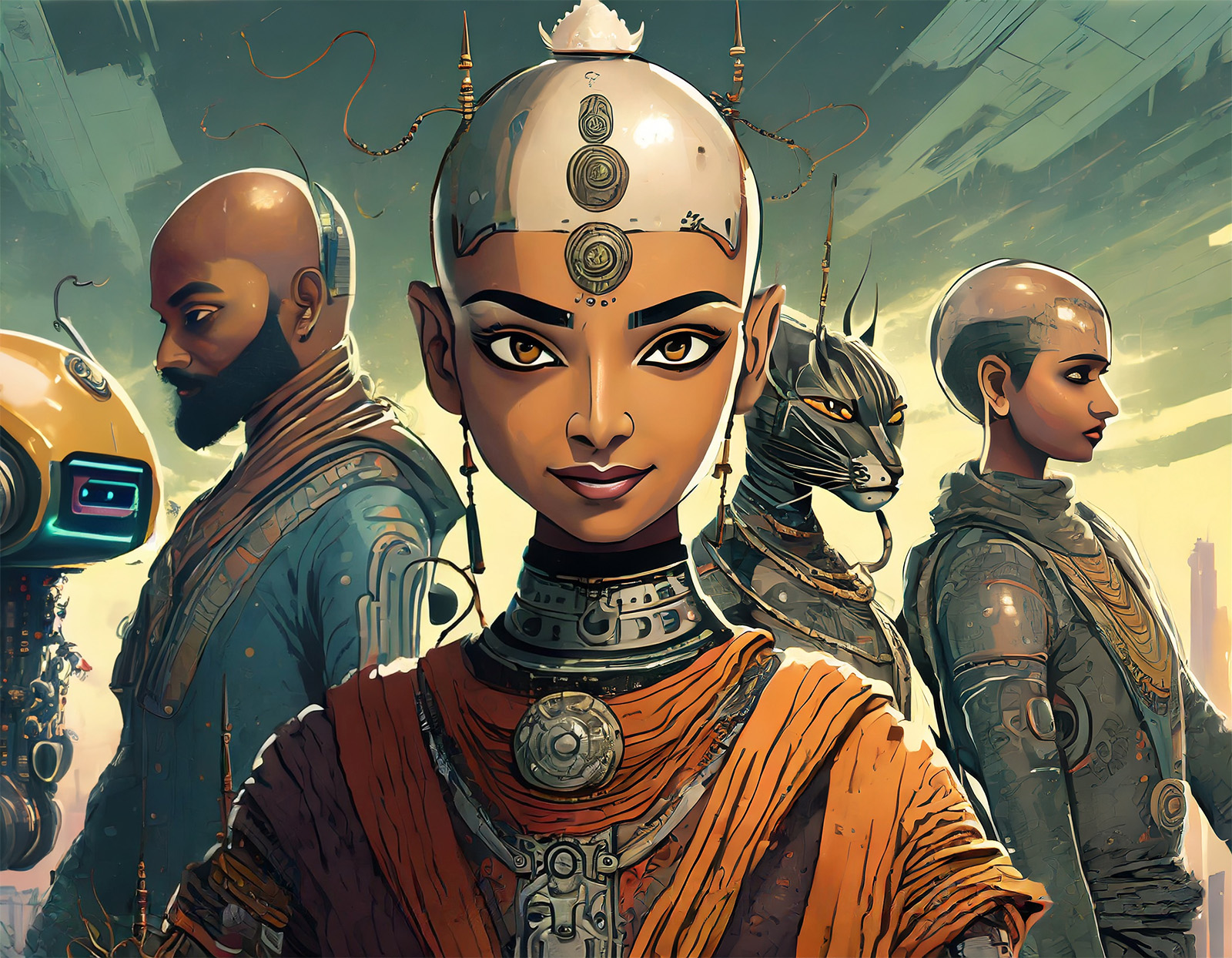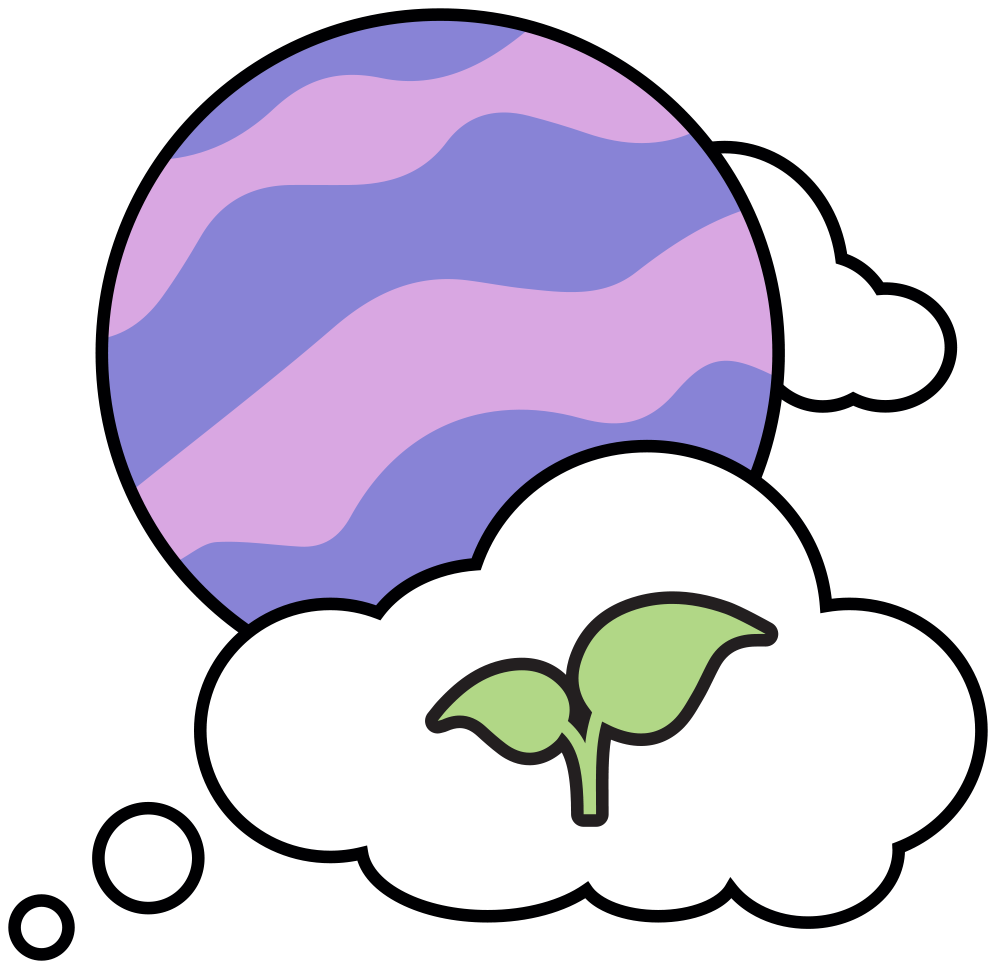
08 Jan Don’t leave without your Seatbelt
In early 2022, I participated in the third cohort of the Dreaming Climate Consciousness workshop. The opportunity to tackle climate issues and science fiction was more excitement than I could contain. This was, after all, my sweet spot… Climate Fiction, a new genre borne – more from necessity, than pure imagination.
Our little group of eight jelled quickly, even though we were all across the country, and even one from the US. The group brought a good amount of diversity too, from age, to culture, to lived experience, each had a unique perspective that enriched the whole experience.
Evan was masterful in guiding the process, making us feel safe to share the grief and concern, and even hope that we all hold on to for the future. Just being able to talk and imagine worlds through a climate change lens on its own felt cathartic.
When we dove into the work, we began with world building, as you do when creating fiction. Defining the setting, the characters and the conflict built upon one another cleverly.
The setting
As a group we had come up with two visions for the future, one was a near term 50-100 years from now set in the Arctic north of Canada where the few remaining settlements were in biodomes. For the other we chose an earth that was set far into the future so that we could be removed from present day situations and imagine a world that was waiting for us in a 1000 years. As a group we imagined it being the aftermath of great climate wars and devastating natural disasters. Where cities were still being bombarded with fireballs raining from the sky. A dystopian future was the perfect setting for where I would imagine the story I would write taking place.
The characters
When we moved on to character building, each of us created a character that would suit the environment we chose. Some of us created two characters, one for each environment. For my future dystopian, I designed Seatbelt, a 1000 year old android lost to time and re-discovered, bridging the knowledge lost over the centuries. Their creator named them Seatbelt as a funny expression for the androids primary purpose – which was to protect them from violent disasters. The back stories of each of the characters were rather fascinating and everyone brought such creative flare to their world.
The conflict
In the future, war, famine, and environmental disaster were still rampant, just at an unbelievable scale. Our task was to weave the stories of each character into a narrative. In my short story, “The Fate of Humanity”, I brought in an academic “freshman” Alien from a far more intelligent galaxy. He came to earth to perform one final assessment before deciding if Earth was in fact, too stupid to manage its own planet’s resources properly – which to their advanced species was the cornerstone of an intelligent race. The Alien was to meet 5 representatives of earth – and in a random turn of events, he along with 5 other characters ended up in a bomb shelter waiting out a dust storm. The defenders of the earth ended up being comprised of the android, Seatbelt, a wealthy queer woman from the inner city who was determined to help and support those more vulnerable than her, who also happened to be partnered with another woman who had lived experience in some of the worst places affected by disaster and war. Next there was a monk who tried to spread stillness and peace everywhere he went, and finally a half-human half-feline creature created by the scientists and bred for war.
Their task was simple. Prove to the alien that Earthlings were intelligent enough to manage the planets resources properly. No big deal.
Of course I needed to inject some Douglas Adams-esque humour to keep the topic lighter, otherwise it really would have been a dark exploration. In the end, I had a 2000 word short story written that captured all we had learned and co-created together.
Finale
The story of climate and science fiction exploration doesn’t end with the worlds or characters we created. Indeed, it keeps going, even if we finish stories, or birth characters into the world, what came out of this workshop is the intangible possibilities and reframing of the world around us. The connections and friendships we made, and even the ideas shared are so woven into all my work now, which cannot be taken back. I feel a deeper sense of resilience and shared mortality having been given the opportunity to sit and explore this imaginative world with others. I’m so grateful for my co-conspirators and Evan for this beautiful offering.
– Kurt Archer is a social entrepreneur, event organizer, speaker coach, and creative writer. He run’s Between Words Theatre company in Victoria, BC where he hosts the One Act Play Festival for new works.
Cover image generated by Adobe Firefly.
